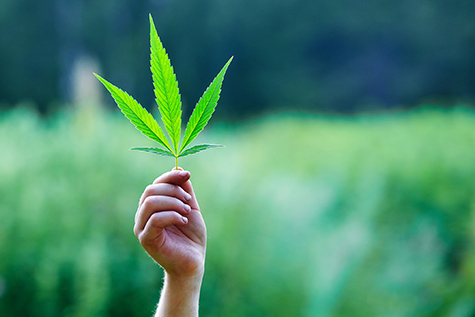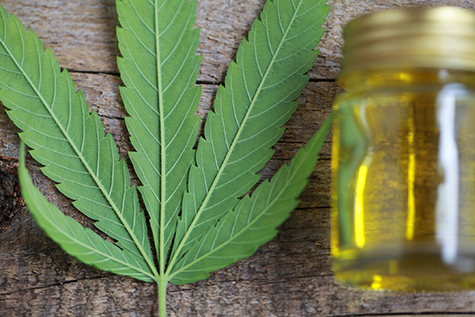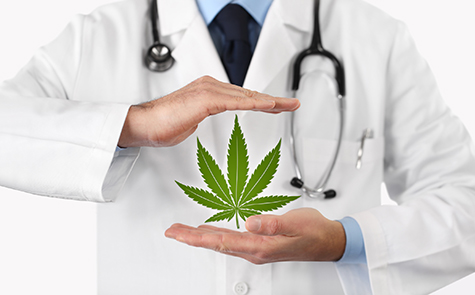CBD Oil Has Exciting Health Benefits

Mystery and intrigue surround the cannabis sativa plant — also known as marijuana — and its possible medicinal properties though it has been used since ancient times. Utilized for food, fiber, oil, medicine and recreation, there are many things the cannabis plant provides us, but perhaps the most intriguing for health is cannabidiol or CBD oil. This compound is the non-psychoactive part of the cannabis sativa plant. Medicinal preparations made from the flowers and resin of the cannabis plant have been used in ancient Chinese medicine, medieval times, Ayurvedic medicine, and even in modern Western medicine into the 1800’s when it was used as a painkiller before aspirin was introduced.
CBD is used medically for:
- Anxiety, depression and stress
- bipolar disorder and schizophrenia
- epilepsy
- multiple sclerosis (MS)
- Parkinson’s disease
- addiction recovery
- nausea and vomiting
- pain relief
CBD has little to no psychoactive compound “THC,” which is found in higher levels in marijuana plants and is also used recreationally or medicinally. When people use marijuana to feel “high,” this is not related to CBD. In fact, CBD could even block the psychotic symptoms of THC. While THC can cause anxiety, CDB can calm it for example, and offer other positive behavioral effects which is why it is used for bipolar or schizophrenia and to treat addiction.
Often taken orally in a liquid, spray or capsule, doses of CBD up to 300mg per day have been used in studies. Higher doses of up to 1500mg have been used safely for up to 4 weeks in some clinical research. Exciting research is being done on the use of CBD oil to treat epilepsy and other disorders involving muscle spasms including Parkinson’s disease and MS. It is also commonly used to reduce pain and relieve nausea and vomiting, especially associated with cancer treatment. Because these diseases are complex and treated medically, it’s important to discuss the use or addition of CBD with your doctor to make sure it’s safe.
Be aware that CBD can cause side effects including dry mouth, low blood pressure and lightheadedness, and feeling of slowness or sedation. There are also some medication interactions to consider including any medication that suppresses the central nervous system or other herbs that have sedative properties including calamus, California poppy, catnip, hops, Jamaican dogwood, kava, L-tryptophan, melatonin, sage, SAMe, St. John’s wort, sassafras, and skullcap. Use caution when combining CBD with these types of supplements or medications. Research on this natural product for modern use is promising, but studies are still mixed as scientist find out more about how it can be used to aid human health, how to dose and which preparation are most effective.
What do you think? Let us know in the comments if you have had a positive experience using CBD oil.
RESOURCES
Today’s Dietitian. Health Benefits of Hemp Seeds. 2018;20(5)44-46. http://www.todaysdietitian.com/newarchives/0518p44.shtml. Accessed 5/17/18.
Natural Medicines Database. CBD: professional monograph. https://naturalmedicines.therapeuticresearch.com/databases/food,-herbs-supplements/professional.aspx?productid=1439. Updated 5/15/2018. Accessed 5/17/18.
Pacher P, Kunos G. Modulating the endocannabinoid system in human health and disease–successes and failures. The FEBS journal. 2013;280(9):1918-43.
Bhattacharyya S, Morrison PD, Fusar-Poli P, Martin-Santos R, Borgwardt S, Winton-Brown T, Nosarti C, MO’Carroll C, Seal M, Allen P, Mehta MA. Opposite effects of Δ-9-tetrahydrocannabinol and cannabidiol on human brain function and psychopathology. Neuropsychopharmacology. 2010;35(3):764.
Devinsky O, Cilio MR, Cross H, Fernandez‐Ruiz J, French J, Hill C, Katz R, Di Marzo V, Jutras‐Aswad D, Notcutt WG, Martinez‐Orgado J. Cannabidiol: pharmacology and potential therapeutic role in epilepsy and other neuropsychiatric disorders. Epilepsia. 2014;55(6):791-802.


